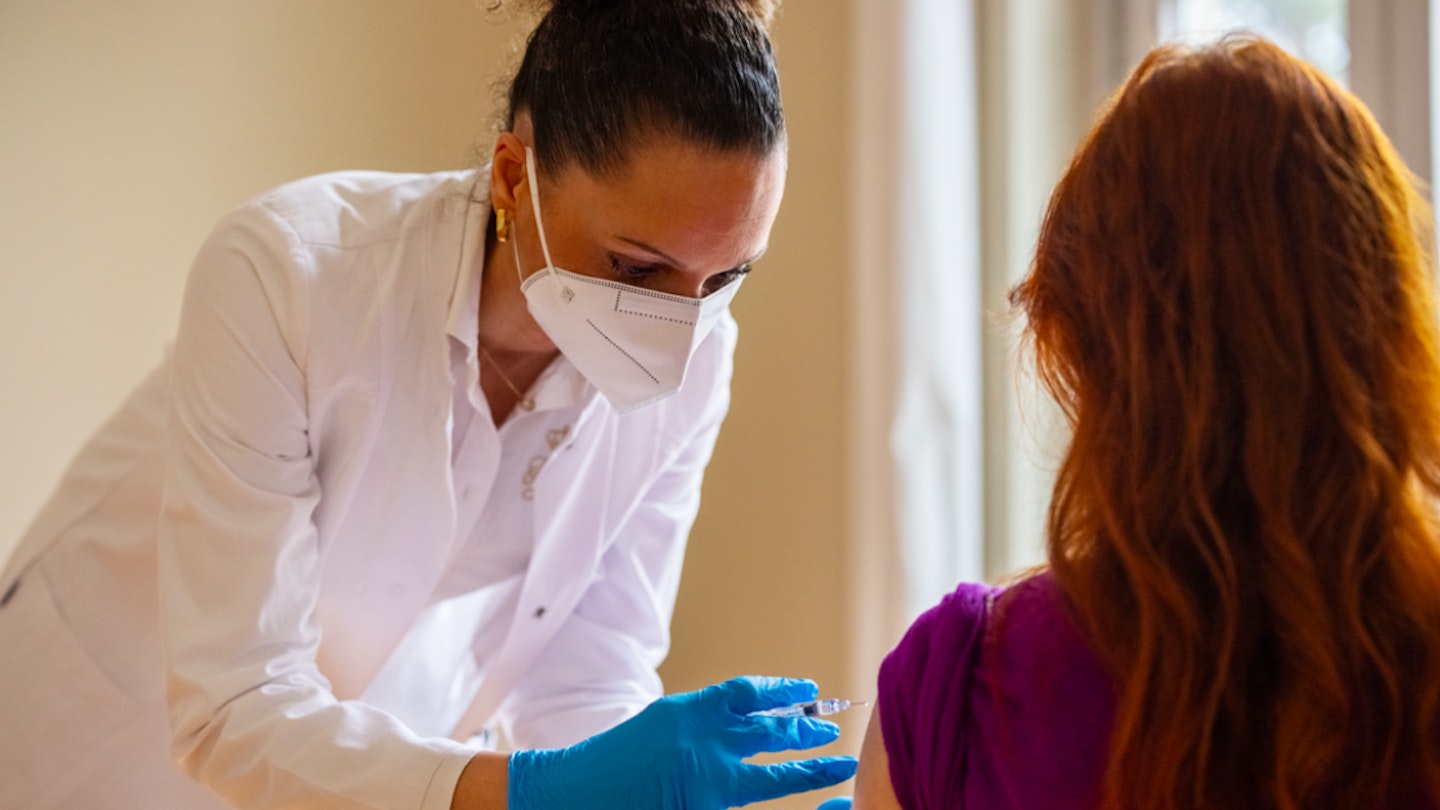Over the last few weeks, Jo Whiley has been trending on Google. The 55-year-old presenter announced that she had been offered the coronavirus vaccine ahead of her vulnerable sister, who has learning disabilities and diabetes. Immediately then, ‘Why did Jo Whiley get the vaccine’ was a breakout search term as people began to enquire about the Radio 2 DJ’s medical history.
In actual fact, as a carer for her sister, Jo Whiley will be in priority group six – the same as her sister – and so was likely offered the vaccine only slightly sooner. Those in priority groups give and six were only invited to book a Covid vaccine from Monday. Of course, in this instance, the fact she was offered it before the vulnerable person she cares for is alarming – but generally, carers being booked in for the vaccine is surely positive, given others may care for more than one person.
What stands out about this story though is not just the question of why Jo Whiley's sister, Frances, wasn’t offered the vaccine before her, but the sheer number of people that felt entitled to know what granted Jo Whiley a priority vaccine in the first place. Clearly those who do not know she was a carer saw her age, her assumedly healthy status and demanded answers.
It's been happening for weeks now, with Insider reporting that dozens of young people with hidden illnesses faced intrusive questioning and harassment online and in-person after receiving a vaccine. Some even at vaccination centres.
'It just felt like I was being judged, and it started pretty much straight away,' Rachel Charlton-Dailey, a 31-year-old journalist with an immune-system disorder told the publication. 'I was being asked about why I was getting the vaccine from volunteers, not even medical professionals, and other people I didn't owe an explanation to.'
Now, there are increasing reports of young people getting the vaccine without hidden illnesses or any particular priority reason - but it's typically because they've accompanied someone who is a priority and there have been spare vaccines leftover that will got to waste if not used within the next few hours.
'One of my friends recently told me she's just had the vaccine. Her husband, who is diabetic, was called in to receive his first jab, and it seemed like she just went along with him and they had some spare,' Louisa, 38, from London, says. 'I've got to admit, I'm a little jealous! Our situation's the same - no underlying conditions, we're the same age and live nearby each other - so it's just luck that she's had it and I haven't.'
But whether or not someone has gotten the vaccine out of sheer luck - although, proximity to a clinically vulnerable person is still clearly a good enough reason to utilise leftover vaccinations - or not, we shouldn’t really be asking why a younger person has gotten the vaccine.
Because, for the vast majority of people offered the vaccine under the age of 65, it will absolutely be because they’re clinically vulnerable or a priority in some way. They could have any range of conditions, from cancer to Crohn's disease. People with rare diseases, lowered immunity due to disease or treatment – like HIV, steroid medication or radiotherapy - and adults who are seriously overweight or mentally ill are all on the list of clinically vulnerable people.
It stands to reason then that many of these people who have been offered vaccines may not particularly want to open up about their medical history, and they shouldn’t have to.
Take someone who is HIV positive for example, a condition that is still heavily stigmatised, should they have to disclose that to a friend, colleague or stranger on the internet all in the name of curiosity? Yes, we’re all filled with questions about the vaccine, priority lists and when we’ll get ours, but those who have had it shouldn’t feel pressured to disclose why. Particularly, when it comes to work environments.
It's really invasive to ask about another persons medical history.
‘I was in a meeting recently where I was the youngest on the call, the vaccine came up in conversation and when I spoke about having mine, I could tell some people wanted to ask why I’d had it,’ says Nadia, 25, who has Crohn's disease. ‘It did make me conscious that I might have to talk about my health conditions in front of my colleagues, purely because this is such a big news story that we’re talking about and people will ask questions without really thinking about whether or not someone is comfortable disclosing that information.
‘I think it would be really invasive for people to ask that especially for more sensitive cases,’ Nadia continued. ‘Because unless you’ve been hiding under a rock, surely you’ll have some clue as to why a younger person might’ve been offered the vaccine.’
That’s the key then isn’t it, just taking a second to think before asking. Because those who are aren’t necessarily asking for malicious reasons, or intending to cause harm, but out of sheer curiosity or carelessness. This is a new conversation no one expected to be having a year ago, people are likely to make mistakes that could be insensitive to vulnerable people, but what we must remember is that when a conversation revolves around someone’s health, we always need to tread lightly.
You never know what someone else is dealing with, physically or mentally, and so while it’s natural to wonder why another person who seems healthy to you has had the vaccine, thinking before voicing those concerns is imperative.
Read More:
24 Hours In A Vaccination Centre - What's It Really Like Getting The Covid Vaccination?
